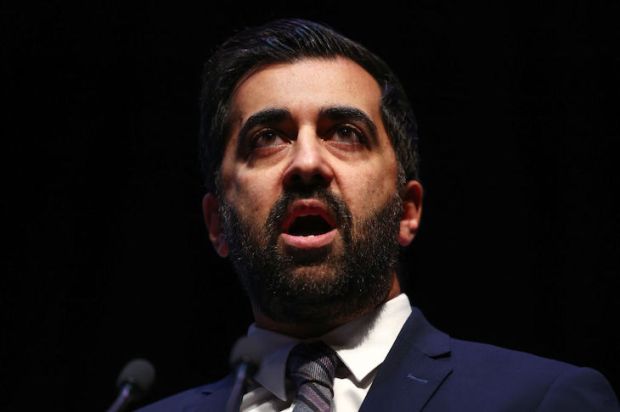Sajid Javid is right to worry about the way the NHS has treated children who identify as transgender. The Health Secretary is reported to be preparing an urgent inquiry into the issue, and planning an overhaul of how the health service treats young people with gender dysphoria.
He is the Secretary of State for Health and Social Care, so it is his job to be concerned. But for too long ministers have shied away from what future generations may consider to be a scandal of epic proportions.
In England, children presenting with gender dysphoria are referred to a single NHS provider – the Gender Identity Development Service (GIDS) operated by the Tavistock and Portman NHS trust. Dr Hilary Cass is currently undertaking a review of GIDS. In her interim report published in February, she said:
A fundamentally different service model is needed which is more in line with other paediatric provision, to provide timely and appropriate care for children and young people needing support around their gender identity. This must include support for any other clinical presentations that they may have.
Cass was right to highlight the fundamental problem faced by GIDS clinicians. The evidence base is inconclusive, and – perhaps worse – there is not even consensus on the condition they are treating. The report highlights that:
A lack of a conceptual agreement about the meaning of gender dysphoria hampers research, as well as NHS clinical service provision.
As someone who was diagnosed with gender dysphoria as an adult, I am not surprised. Gender dysphoria is not like the measles or the mumps where there are objective tests to support a diagnosis. The only source of evidence is the word of the patient. If you claim to be dysphoric about your gender – whatever that means to you – then you have gender dysphoria. Moreover, the patient then specifies the treatment for the condition. For me that was hormone therapy and gender reassignment surgery. Perhaps my life was improved, perhaps it wasn’t, but my own gender clinic has no clue either way. I was discharged two months after my surgery in 2016, and I’ve had no contact since.
But – arguably – adults are responsible for the choices we make about our own bodies. Cass and Javid are talking about children. Youngsters deemed too immature to consent to a tattoo – presumably because tattoos leave permanent marks – have been put on a course of treatment to stop their normal development during adolescence, with drugs that were never even licenced for that purpose.
Javid is said to be particularly alarmed by Cass’s findings that some non-specialist staff felt ‘under pressure to adopt an unquestioning affirmative approach’ to transitioning and that other mental health issues were ‘overshadowed’ when gender was raised.
This suggests to me that the clinical approach is being driven not by evidence but by ideology – the concept that we all have a mysterious ‘gender identity’ that is somehow more important than our biological sex when society needs to distinguish between men and women.
Recent cases in sport have alerted a wider audience to the impact on women. Female swimmers for example were left to compete for second place when Lia Thomas – a biological male – stepped onto the poolside.
But sporting outrages can be rectified more easily than the arrested development of children. The long-term prognosis for youngsters whose puberty has been blocked is not known because doctors have never before conducted such experiments on adolescents.
Of course, not all children referred to GIDS have been prescribed puberty blockers, and many others are languishing on long waiting lists. However, assuming that their parents have not succumbed to private providers who write prescriptions for a fee, they are left in a state of limbo – thinking that there is a treatment available that would solve all their problems, but out of their reach. What must that do to anyone’s mental health?
Children are suffering now, so Javid is right to step in now with an urgent inquiry, even while we await Cass’s final report. There has been too much dithering, and for too long. Yes, there is likely to be criticism and condemnation from the LGBTQIA+ lobby, but governments need to worry less about upsetting lobby groups and rather more about protecting children.
Got something to add? Join the discussion and comment below.
Get 10 issues for just $10
Subscribe to The Spectator Australia today for the next 10 magazine issues, plus full online access, for just $10.




















Comments
Don't miss out
Join the conversation with other Spectator Australia readers. Subscribe to leave a comment.
SUBSCRIBEAlready a subscriber? Log in